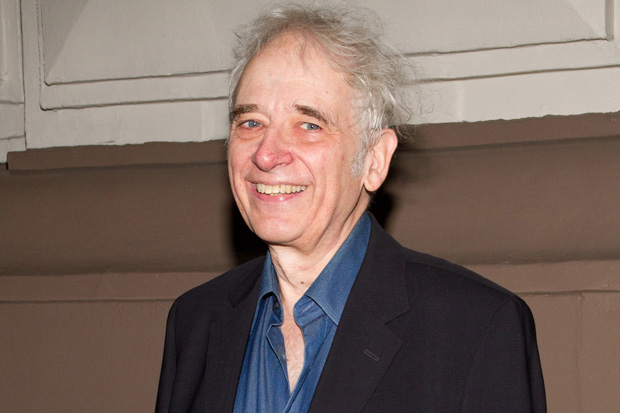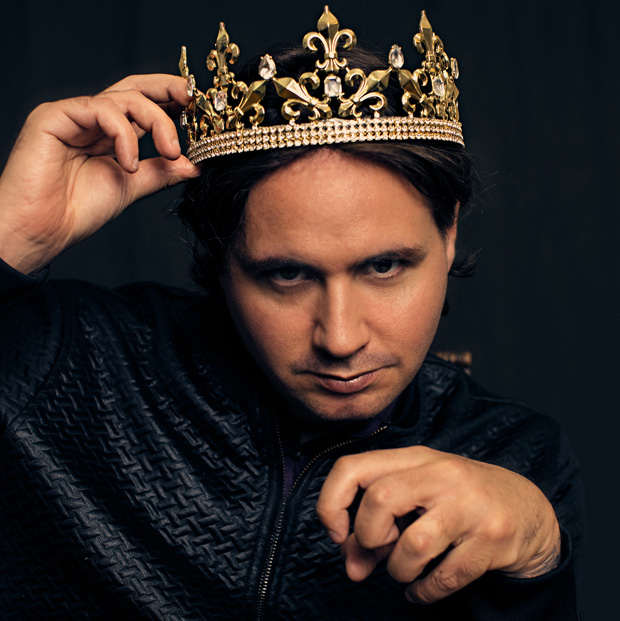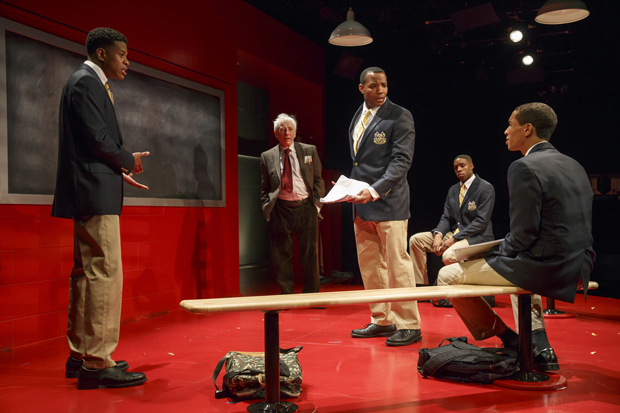Austin Pendleton Shares His Best Advice for Actors
The actor-director also discusses his upcoming projects: ”Wars of the Roses: Henry VI & Richard III”, ”A Lovely Sunday for Creve Coeur”, and ”Choir Boy”.

(© Tristan Fuge)
Austin Pendleton is prolific, and it seems like it has been that way ever since his 1964 Broadway debut as Motel in the original production of Fiddler on the Roof. Five decades and hundreds of shows later, he's still singing "Miracle of Miracles," most recently with Ben Liebert, who plays Motel in the Yiddish-language revival from National Yiddish Theatre Folksbiene.
An actor, director, and adapter, Pendleton is wearing all three hats in the upcoming Wars of the Roses: Henry VI & Richard III (August 1-19), which traces the malice of Shakespeare's famously wicked king back to its source. After that, he's directing Tennessee Williams's rarely produced late play, A Lovely Sunday for Creve Coeur, for La Femme Theatre Productions (September 14-October 21). Earlier this summer, he helmed the revival of John Wulp's The Saintliness of Margery Kempe (closing August 26). And on December 27, he makes his return to the Broadway stage in Tarell Alvin McCraney's Choir Boy following a nearly two-decade absence.
Pendleton spoke to TheaterMania about his busy year. He also shared one of his biggest takeaways from half a century in the business.
You've condensed Richard III's story in the War of the Roses tetralogy into one play, you've directed it, and you're appearing in it as Henry VI. How did that happen?
Matt de Rogatis came to me and said he wanted to play the part. Now, I've played Richard twice. When I was working on it, I became aware that I could find the source of a lot of his behavior in Henry VI, Part 3, which may be the best of Shakespeare's early history plays. The problem with Richard III is that what you see at the beginning with him is what you get: He's mean and he's going to kill people. But in Henry VI, Part 3, you really see what he was like before. So I promised to direct, but only if we could connect the two plays and make a whole bunch of cuts so our play won't be any longer than either of those two.
How does Richard become a villain?
He murders Henry VI, which is unnecessary because he's already in the tower and the Yorks have won the war. But he probably thinks a Lancaster faction will rise up again, so he kills the head so there is no one to rally around. But he doesn't become a serial killer until he has the crown. He thinks it will make him feel better, but he starts worrying how to hold on to it. If he thinks anyone is beginning to turn against his, he executes them.

(© Chris Loupos)
Did you cut any famous lines?
Matt asked me if our cuts meant that he doesn't get to say, "Now is the winter of our discontent." He doesn't get to say that in our version, but he has a much better monologue in Henry VI, Part 3. He starts it off saying that that there's nothing left for him. The cornerstone of his life was his father. His father loved him, took him seriously, and gave him his name. Then his father is brutally murdered. While Richard's brother, Edward, is really hurt by that, Richard decides not to feel anything. He shuts down a part of himself. And we never hear about his mother until she appears at the very end to tell him she doesn't like him and never has.
Why did you want to play Henry?
I offered it to an actor who couldn't decide whether to do it or not. He loved the part, and I kept extending the deadline when he could make up his mind. Finally, deep into the rehearsal period, he said he couldn't do it. So I decided to do it, because if he changed his mind again, I could step down. It's a good part, but I never expected to play it.
Your next show is A Lovely Sunday for Creve Coeur. Is this one that you have wanted to direct for a while?
Yes. I've been very fond of Tennessee Williams's late plays. I've directed Vieux Carré three times and I recently directed The Two-Character Play. I've also directed Cat on a Hot Tin Roof three times. The first thing I ever directed was The Glass Menagerie, starring my mother.

(© Joan Marcus)
You're reprising the role of Mr. Pendleton in Choir Boy on Broadway. How different will the Broadway production be from the off-Broadway debut in 2013?
We did a workshop for a week in January. By the time we did the reading for the Manhattan Theatre Club staff at the end of the week, Tarell had rewritten about 50 pages. He and Tripp would have these complex discussions and Tarell would stay up half the night and come in with a new scene that would be better. They went through every scene that way. The play tells exactly the same story, but the writing is different.
How do you choose what projects to work on?
I take almost everything I'm offered. I only turn it down if the script just doesn't speak to me at all. But even if I don't understand the play and I like it, I'll direct. I don't have a list of plays I want to direct. I never have. Early on in the business, I realized that it was stupid to do that, especially as an actor. You get fixated on certain roles, and you get shattered if they come up and you've not been allowed to do them. It's a waste of energy.
Is that a lesson you learned from personal experience?
I lost a part the second year I was an apprentice at Williamstown, and I was counting on getting it. It upset me so much that I was actually like Scarlett O'Hara throwing up in the garden. I decided, as God as my witness, I will never want a single part that much again. I've come close to it twice, but the alarm bells went off. One was for Mozart in Amadeus and the other was the lead in The Normal Heart. I came so close, but then I would stop myself and say, "Don't do this." I talk about that to my students all the time: Don't fall into that trap.







